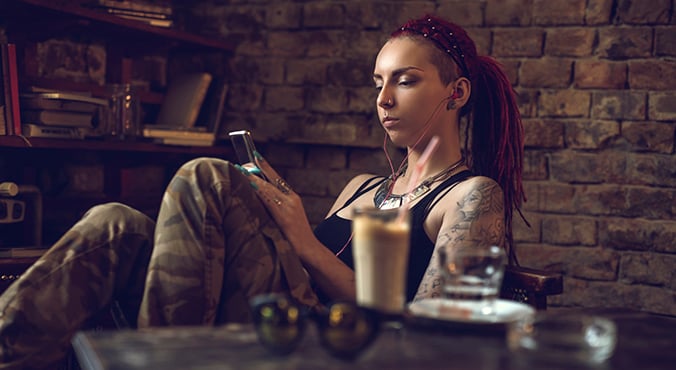
Image: iStock.
Fear Of Missing Out, or “FOMO”, is such a common experience that the acronym was added to the Oxford Dictionary this year. You might know it as the sinking feeling you get when you check Instagram and see that your friend made pancakes… and didn’t invite you.
But when it comes to social media FOMO – “Anxiety that an exciting or interesting event may currently be happening elsewhere, often aroused by posts seen on a social media website,” as the Oxford Dictionary says – it’s not actually our social lives we should be worried about.
According to a recent study by the University of Glasgow, it’s actually our mental health that’s truly losing out.
The study found that the more time and emotion that teenagers invested into social media, the more they experienced negative effects on their mental health. This includes higher instances of anxiety and depression, worse sleep quality and lower self-esteem.
For the 467 adolescents interviewed, who were aged between 11 and 17, anxiety was beginning to seep into their lives, as their social media use increased. This was largely due to the perceived pressure to be constantly available to respond to posts or texts.
The researchers found that social media use impacted sleep quality and that those who experienced the worst sleep had logged on at night.
